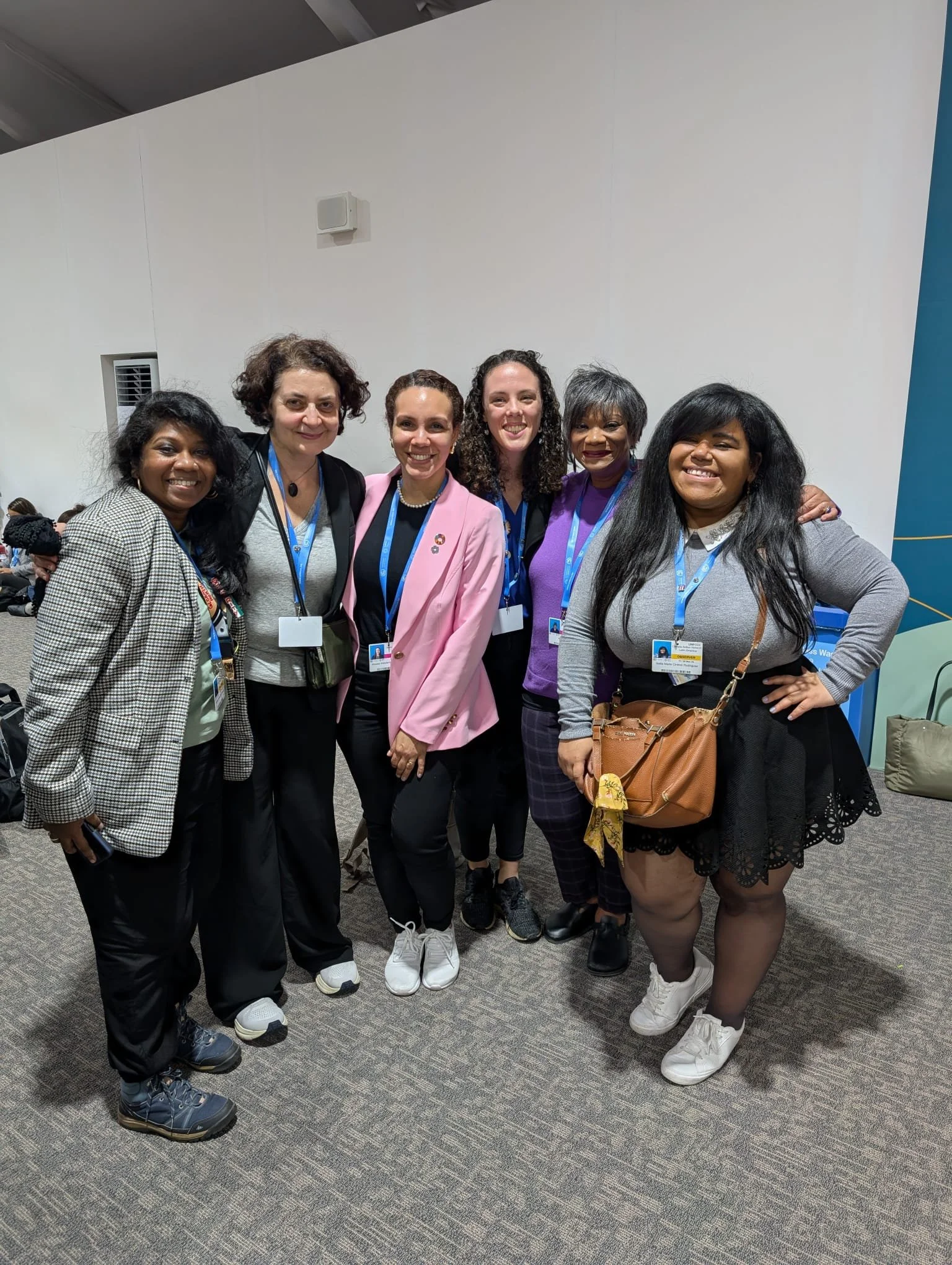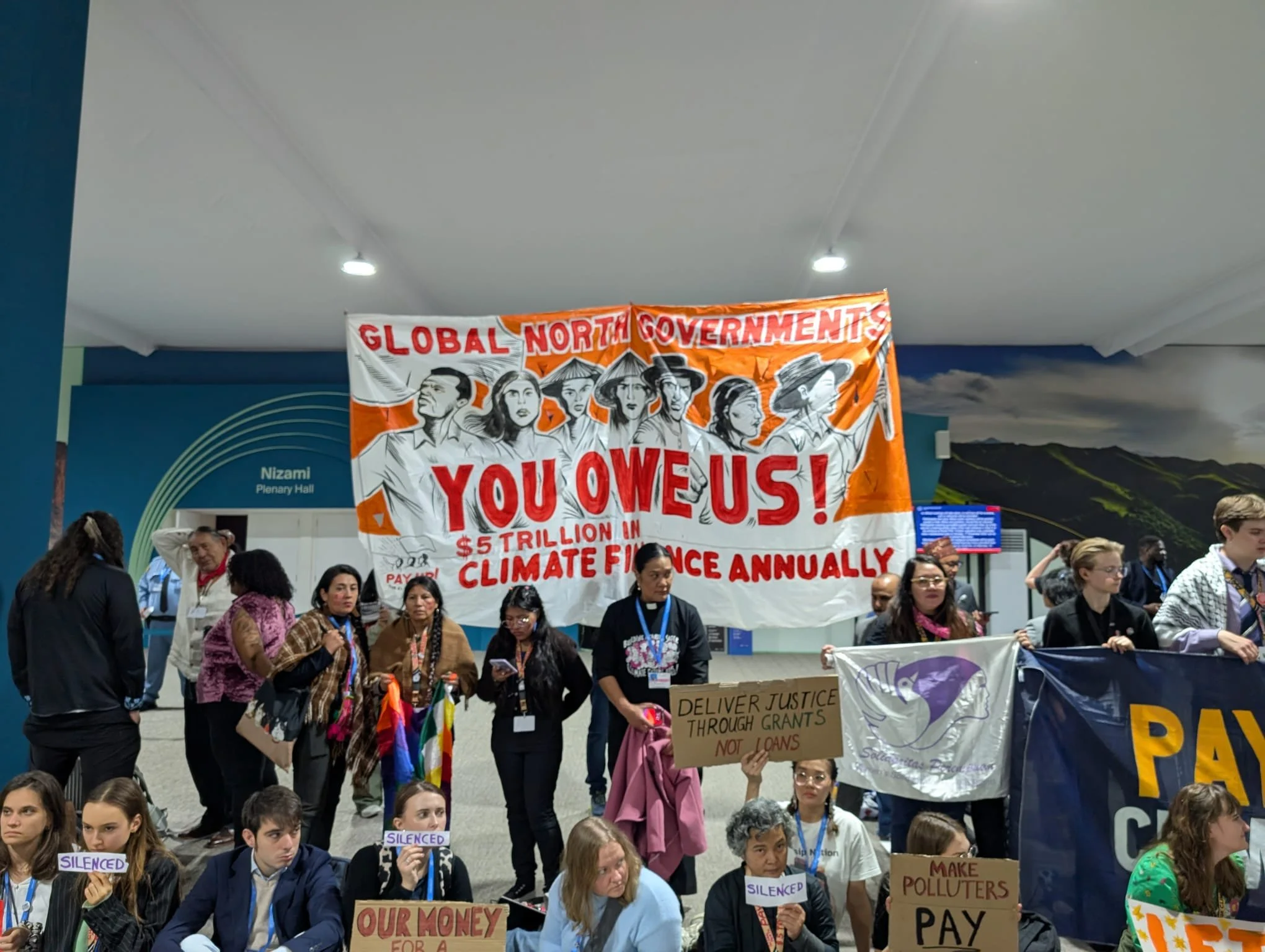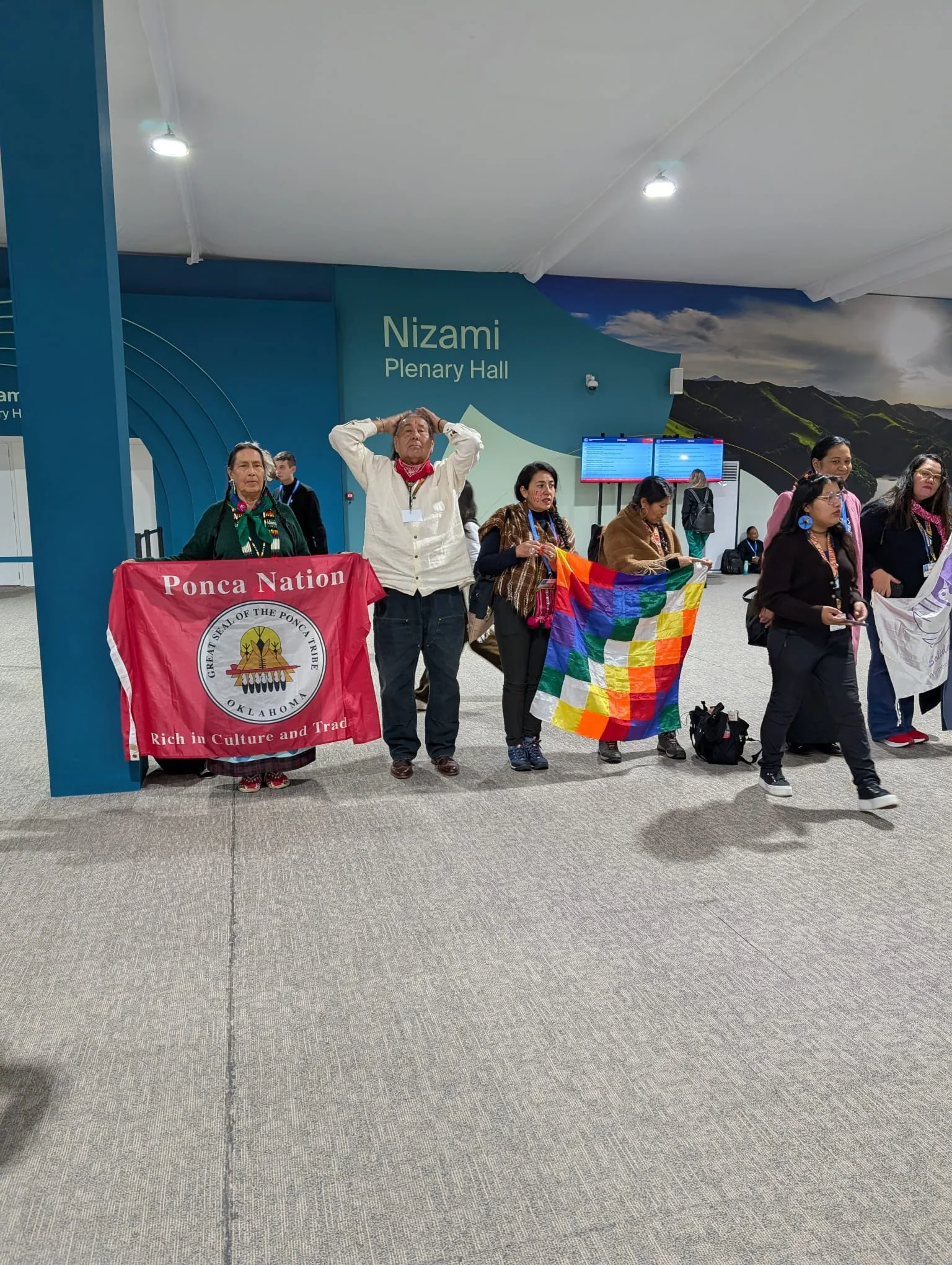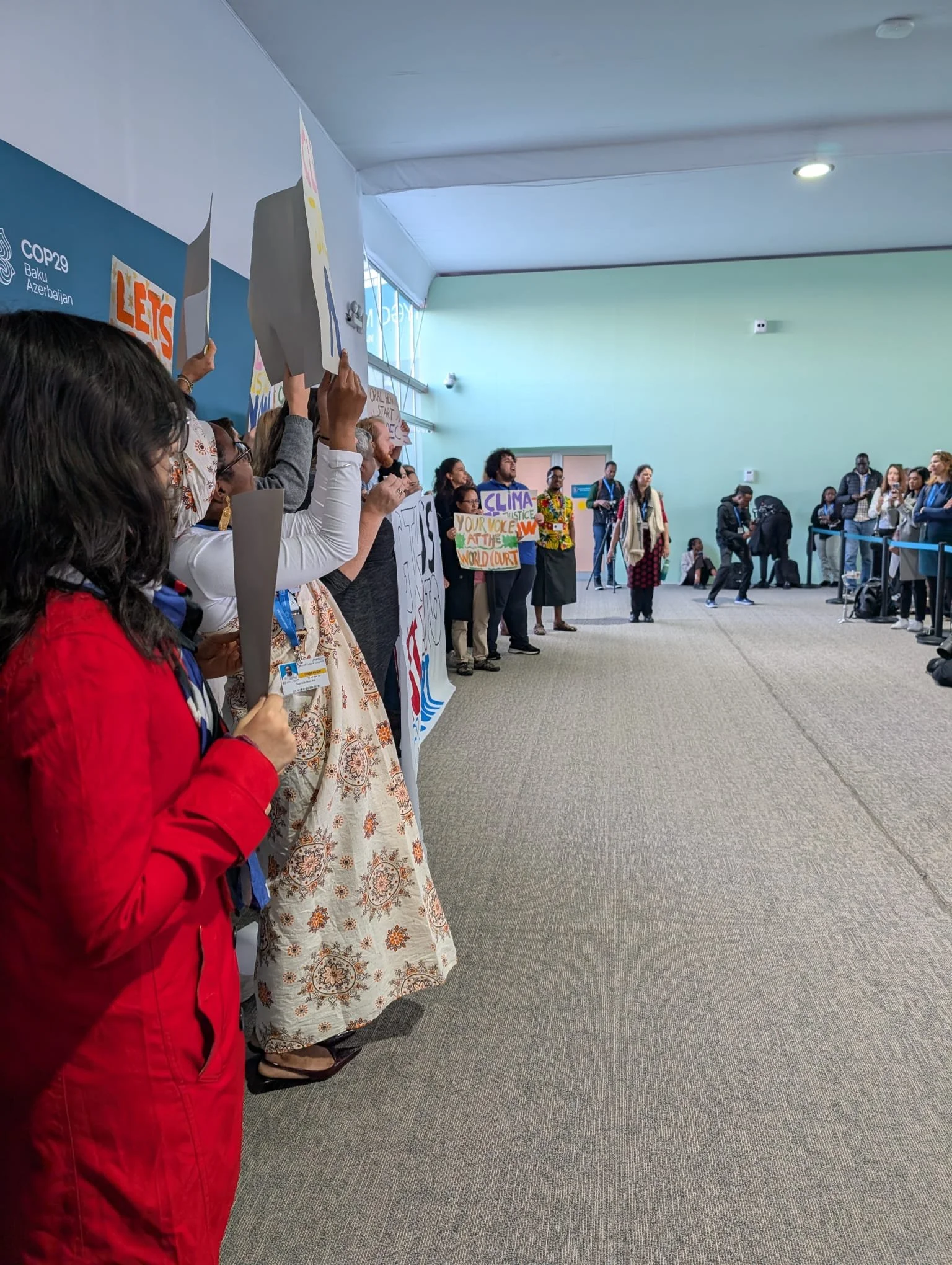Inside COP29 | Midway Point: Where do we stand?
As COP29 reaches its halfway point, the negotiations in Baku are heating up, and so are the tensions in the conference halls. With the Global Stocktake (GST), Article 6.4, and the New Collective Quantified Goal (NCQG) dominating the agenda, it’s time to reflect on progress—or lack thereof—so far.
Key Developments: GST, Article 6.4, and Finance
Global Stocktake (GST)
The GST dialogue has revealed hard lines from countries across blocs. While some progress has been made on linking GST outcomes with next steps, issues around finance remain contentious. Developing countries emphasize that finance isn’t just a pillar—it’s the backbone of every action. Without equitable finance, there’s no phase-out of fossil fuels, no meaningful just transition, and no implementation of the 1.5°C goal.
Article 6.4
Negotiations on Article 6.4 saw some movement in the first week. The CMA accepted the Supervisory Body’s recommendations on methodologies and removals, but critical questions around governance and further guidance remain unresolved. While this might appear as progress, many civil society groups caution against premature adoption, warning that loopholes could undermine climate integrity.
Finance Negotiations
Finance continues to be the most divisive issue, with developing countries calling for grant-based public finance and an exclusion list for harmful investments. G77’s rejection of a prior NCQG framework led to the development of a new 34-page text, which, while slightly improved, still falls short of the balanced and ambitious goals needed. Meanwhile, developed countries remain hesitant to commit to concrete numbers, with the G7 under fire for blocking meaningful progress.
Action for Climate Empowerment (ACE): A Win Amid Challenges
Amid the complexity and contention of COP29 negotiations, Action for Climate Empowerment (ACE) emerged as a bright spot. After facing delays and setbacks during COP28, ACE successfully saw the adoption of its 2023 and 2024 reports, a testament to the resilience of advocates pushing for climate education, public awareness, and capacity building. Notably, the reports include hard-fought references to finance—a significant milestone ensuring that ACE is backed not only by commitments but also by resources.
However, challenges persist. Discussions around ACE often face marginalization in broader negotiations, with limited space in high-level dialogues and insufficient attention to its transformative potential. Civil society groups have consistently highlighted that ACE is not just a supplementary agenda item—it’s central to empowering communities, fostering inclusive participation, and achieving climate justice.
The ACE community at COP29 has worked tirelessly to mainstream ACE across negotiations, ensuring its integration into discussions on the Global Stocktake (GST), the Mitigation Work Programme (MWP), and Just Transition (JT). This cross-cutting approach emphasizes ACE’s role in equipping individuals and communities to take meaningful action, bridging the gap between global commitments and local implementation.
As the second week unfolds, the focus will shift toward embedding ACE within decision texts, ensuring it is not sidelined but positioned as a critical enabler of climate ambition and equity. With finance now explicitly linked to ACE, the hope is to sustain this momentum and build on it in the years to come. Now all eyes are on making sure quality of NCQG reflect ACE pillars.
Actions and Civil Society Mobilization
The first planned aAction for Climate Empowerment (ACE): A Win Amid Challengesctions kick off during the first week, and civil society is rallying under the theme of accountability. Highlights include:
Finance and Just Transition Actions: Featuring powerful visuals like the "Pay Up" letters and calls to defund genocide.
Youth-Led Protests: Youth voices will spotlight the links between climate finance and demilitarization.
Degrowth and False Solutions: A strong pushback against narratives promoting fossil fuels as "transitional."
With limited space for actions during the Leaders’ Summit, activists are creatively amplifying their messages through campaigns like "Pay Up" lanyards and decentralizing mobilizations.
New Nationally Determined Contributions (NDCs): Progress or Posturing?
So far, the announcements of new or updated NDCs have been underwhelming:
Brazil: While a lower and ambitious band were presented, critics noted the lack of clarity on phasing out fossil fuels.
UK and Azerbaijan: These countries are also announcing targets, but skepticism lingers about their alignment with the 1.5°C pathway.
Civil society groups like CAN have put forth a guidance document to critically assess these NDCs, urging negotiators to prioritize equity and ambition over greenwashing.
Fossil of the Day: G7 and Italy Take the Heat
Civil society groups have awarded the infamous Fossil of the Day to:
The G7: For failing to step up on their fiscal responsibility, hiding behind ambiguous commitments, and promoting private finance over much-needed public investments.
Italy: For expanding fossil fuel imports and maintaining close ties with Azerbaijan, including a significant increase in fossil gas imports through the Trans Adriatic Pipeline.
These awards underscore the disconnect between high-emitting nations’ rhetoric and their actions.
Looking Ahead: A Make-or-Break Moment
With a week left, the stakes couldn’t be higher:
Finance Text: Developing countries demand clarity and equity, while developed countries drag their feet.
Adaptation and Loss & Damage: The Global Goal on Adaptation (GGA) and the Loss and Damage Fund remain points of contention, with calls for transformational adaptation and targeted support for SIDS and LDCs.
Mitigation Work Programme (MWP): Discussions risk becoming a “talk shop” without concrete outcomes. Countries must prioritize actionable solutions.
The coming days will determine whether COP29 delivers meaningful outcomes or becomes yet another missed opportunity. The world is watching, and civil society remains vigilant.
Stay tuned as we continue to push for accountability, equity, and real climate action in the final stretch of COP29.






